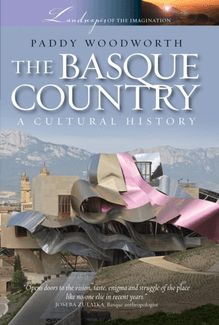-
 Univers
Univers
-
 Ebooks
Ebooks
-
 Livres audio
Livres audio
-
 Presse
Presse
-
 Podcasts
Podcasts
-
 BD
BD
-
 Documents
Documents
-
- Cours
- Révisions
- Ressources pédagogiques
- Sciences de l’éducation
- Manuels scolaires
- Langues
- Travaux de classe
- Annales de BEP
- Etudes supérieures
- Maternelle et primaire
- Fiches de lecture
- Orientation scolaire
- Méthodologie
- Corrigés de devoir
- Annales d’examens et concours
- Annales du bac
- Annales du brevet
- Rapports de stage
La lecture à portée de main

Vous pourrez modifier la taille du texte de cet ouvrage
Découvre YouScribe en t'inscrivant gratuitement
Je m'inscrisDécouvre YouScribe en t'inscrivant gratuitement
Je m'inscrisEn savoir plus
Vous pourrez modifier la taille du texte de cet ouvrage
En savoir plus

Description
Sujets
Informations
| Publié par | Andrews UK |
| Date de parution | 26 juillet 2013 |
| Nombre de lectures | 0 |
| EAN13 | 9781908493903 |
| Langue | English |
Informations légales : prix de location à la page 0,0500€. Cette information est donnée uniquement à titre indicatif conformément à la législation en vigueur.
Extrait
Title Page
GERMANY
Beyond the Enchanted Forest: A Literary Anthology
By
Brian Melican
Publisher Information
First published in 2013 by
Signal Books Limited
36 Minster Road Oxford OX4 1LY
www. signalbooks.co.uk
Digital edition converted and distributed in 2013 by
Andrews UK Limited
www.andrewsuk.com
© Brian Melican
Foreword © Philip Oltermann
All rights reserved. The whole of this work, including all text and illustrations, is protected by copyright. No parts of this work may be loaded, stored, manipulated, reproduced or transmitted in any form or by any means, electronic or mechanical, including photocopying and recording, or by any information, storage and retrieval system without prior written permission from the publisher, on behalf of the copyright owner.
Cover Design: Tora Kelly
Production: Tora Kelly
Cover Images: Wikipedia Commons
Images: Wikipedia Commons
Dedication
For Thomas Scheele and Mark McDonald,
two people to whom I wish I could still give a copy personally
Foreword
IF A MARTIAN were to use this book to bone up on the character of the German people ahead of a holiday, he would quite possibly be left sitting on a bit of volcanic rock, scratching his head in confusion. What a strange bunch of people this is. These humans are supposedly terrible at cooking (raw cabbage with bacon dusting is a particular favourite) and at the same time brilliantly gastronomically gifted, producing meals that are both bland and “rich and spicy”, including “rye bread, dark pine-honey and huge ice-cream puddings”. Germany’s countryside, meanwhile, is marked by “Waste & Decay”, but also “beautiful, well cultivated Plains”. Are the Germans desolately poor or stinking rich? It’s hard to say. Are they “inferior in creative intellect” or uniquely erudite? Cold and distant, or hyper-sexualised and touchy-feely? All these assessments of the German character can be found in this rich and varied collection. The Germans, it seems, have traditionally been regarded by visitors from Britain and America as a walking collection of paradoxes, “the politest people on earth” who are also “a warlike race”, a people both “modern and impressive” but also “unmodern, almost primitive”. The only reconciliation lies in the fact that those Germans who have come the other way have hardly been less puzzled.
Considering the geographical proximity between Great Britain and Germany, considering how much history they share, it is curious how frequently meetings between these two Northern European nations have ended in misunderstandings. In fact, one of the most beautiful ironies in the history of Anglo-German relations is that the two countries who can claim to have given birth to Romanticism have found it notoriously hard to kindle romance between each other. Two poets closely associated with the Romantic movement illustrate this. Both at least tried to bridge the culture gap: William Wordsworth, featured in this collection, travelled to Germany in 1789. The German poet Heinrich Heine went the other way in 1827. Both had nurtured a fascination with the country they were visiting and both wanted to meet their idols: Wordsworth admired the “German Milton” Friedrich Gottlieb Klopstock, while Heine was keen to seek out the radical publicist and radical William Cobbett.
In the end, neither of them quite found what they had been looking for. Wordsworth met Klopstock but seems more struck by the ageing man’s grotesque physical appearance than his intellect. Hamburg, where he and his sister Dorothy arrive, is “a sad place”, and Goslar, where they end up, marooned by snow and ice, is an “old decaying city”. The seminal poem he produces in the Harz mountains is less inspired by the German landscape than by his homesickness for the English countryside.
Heine’s encounter is even more crushing. At the Crown and Anchor Tavern off the Strand, he looks on with despair as Cobbett engages in a shouting match with a group of politicos. His verdict is damning:
Poor old Cobbett! Dog of England! I have no love for thee, for every vulgar nature my soul abhors; but thou touchest me to the inmost soul with pity, as I see how thou strainest in vain to break loose and to get at those thieves who make off with their booty before thy very eyes, and mock at thy fruitless springs and thine impotent howling.
If the accounts assembled in this anthology are so fascinating to anyone with a personal history that bridges German and British culture, it’s because we recognise in encounters like the two above a familiar pattern: high hopes, dashed on the rocks of hard fact, and—sometimes—a reconciliation with reality.
Are Britain and Germany getting better at getting on with each other? Are our expectations these days less overblown and more realistic? The optimist in me would like to think so. One distinctive trend noticeable in these British and American accounts of Germany is that after decades of belittling the Germans, a century of distrust and a decade of noticeable disinterest, we are currently witnessing a revival of “the good German” in English-language writing.
US-born travel writer Bill Bryson’s account of his visit to Germany may well turn out to be ahead of its time in that respect, calling the Germans “the new Americans—rich, ambitious, hard-working, health-conscious, sure of their place in the world” and concluding that “I was happy to hand them my destiny”. This is even more remarkable considering that passage was written in 1991: a year after the reunification that was watched with such unease in Britain, after a painful defeat in a World Cup semi-final and after Margaret Thatcher’s industry secretary Nicholas Ridley had described the European Monetary Union as “a German racket designed to take over the whole of Europe”.
In 2013, British politicians and journalists are more likely to echo Bryson’s sentiments than Ridley’s. The Germanophile rhetoric of the current Labour leaderships has been so enthusiastic as to earn it the moniker “Neue Labour”, while the Trades Union Congress has published a pamphlet called “German Lessons”. On the directly opposite side of the political spectrum, the Tory MP Elizabeth Truss has made a plea to “rebuild Britain’s economy the German way”, while former Conservative defence secretary Liam Fox has argued that “Britain must learn from Germany—not France and Greece”. “If there is one alliance in Europe that makes sense, it has always been between Britain and Germany,” Guardian columnist Simon Jenkins wrote earlier this year. Even the tabloids are getting in on the act: after David Cameron’s speech on an in-out referendum for British membership of the EU, both Bild and the Sun published lists with ten reasons why they really loved their North Sea neighbours.
It remains to be seen whether Germany can live up to so many divergent expectations at once. But perhaps we should enjoy the romance while it lasts—if Brian Melican’s perceptive anthology teaches us anything, it’s that our current views are unlikely to stay the same for long.
Philip Oltermann
Introduction
In a sporting metaphor much loved by journalists, confrontations between the English-speaking and Germanophone peoples over the course of history have taken on something of a derby character. In the United Kingdom, Germany is the preferred foe for everything from football to bagging sun-loungers on that great Mediterranean outpost of northern Europe, Mallorca; and during the long decline from its early-twentieth-century geopolitical and industrial zenith, Britain has continually looked to its military victories over Germany for reassurance of its resilience. For the United States, too, Germany is a country against which measures of military muscle have an important societal role, albeit as part of the national narrative of how America became, for a period in the late twentieth century, the greatest country in the world. Canada, Australia, India: all of these outposts of the English language have taken up arms against Germany in the last hundred years, too.
Of Saxons and Saxe-Coburg-Gothas
Yet this rivalry is by no means as immutable as many English-speakers would think. For much of their history, the old enemy of the English has been the French. In fact, to rephrase this slightly: ever since the English stopped being German, they have been fighting the French. At the Battle of Hastings, the King of England who was defeated was a Saxon. Saxony today, of course, is a region of Germany.
The Saxons spoke a dialect of Old German, which in turn became Old English as it mixed with Old Norse (itself also a Germanic tongue); it became the English we speak today only after a few centuries of close and continued interaction with French. Words which were in use before 1066 tend to be cognates in modern English and German: bed and Bett, before and bevor, bread and Brot, to name but a few. In some regions of England there is no difference in pronunciation between the two languages: English-speakers from Newcastle diphthongize several words in the same way as modern German—just listen to a Geordie and a German say the words beer and Bier. If Britain and America are two nations divided by common language, Germany and Britain today are two nations united by a different language.
As, of course, are America and Germany. The sheer scale of German immigration into America led to a second period of interaction between (what had now become) the two languages in the nineteenth century. The United States loves its “brats”—nothing less than a contraction of Bratwurst—as well as its frankfurters and wieners, sends its kids to kindergarten and freely uses Yiddish words like schmuck, which also have their roots in German. Other, less obv
Attention
En entrant sur cette page, vous certifiez :
- 1. avoir atteint l'âge légal de majorité de votre pays de résidence.
- 2. avoir pris connaissance du caractère érotique de ce document.
- 3. vous engager à ne pas diffuser le contenu de ce document.
- 4. consulter ce document à titre purement personnel en n'impliquant aucune société ou organisme d'État.
- 5. vous engager à mettre en oeuvre tous les moyens existants à ce jour pour empêcher n'importe quel mineur d'accéder à ce document.
- 6. déclarer n'être choqué(e) par aucun type de sexualité.
YouScribe ne pourra pas être tenu responsable en cas de non-respect des points précédemment énumérés. Bonne lecture !
-
 Univers
Univers
-
 Ebooks
Ebooks
-
 Livres audio
Livres audio
-
 Presse
Presse
-
 Podcasts
Podcasts
-
 BD
BD
-
 Documents
Documents
-
Jeunesse
-
Littérature
-
Ressources professionnelles
-
Santé et bien-être
-
Savoirs
-
Education
-
Loisirs et hobbies
-
Art, musique et cinéma
-
Actualité et débat de société
-
Jeunesse
-
Littérature
-
Ressources professionnelles
-
Santé et bien-être
-
Savoirs
-
Education
-
Loisirs et hobbies
-
Art, musique et cinéma
-
Actualité et débat de société
-
Actualités
-
Lifestyle
-
Presse jeunesse
-
Presse professionnelle
-
Pratique
-
Presse sportive
-
Presse internationale
-
Culture & Médias
-
Action et Aventures
-
Science-fiction et Fantasy
-
Société
-
Jeunesse
-
Littérature
-
Ressources professionnelles
-
Santé et bien-être
-
Savoirs
-
Education
-
Loisirs et hobbies
-
Art, musique et cinéma
-
Actualité et débat de société
- Cours
- Révisions
- Ressources pédagogiques
- Sciences de l’éducation
- Manuels scolaires
- Langues
- Travaux de classe
- Annales de BEP
- Etudes supérieures
- Maternelle et primaire
- Fiches de lecture
- Orientation scolaire
- Méthodologie
- Corrigés de devoir
- Annales d’examens et concours
- Annales du bac
- Annales du brevet
- Rapports de stage











